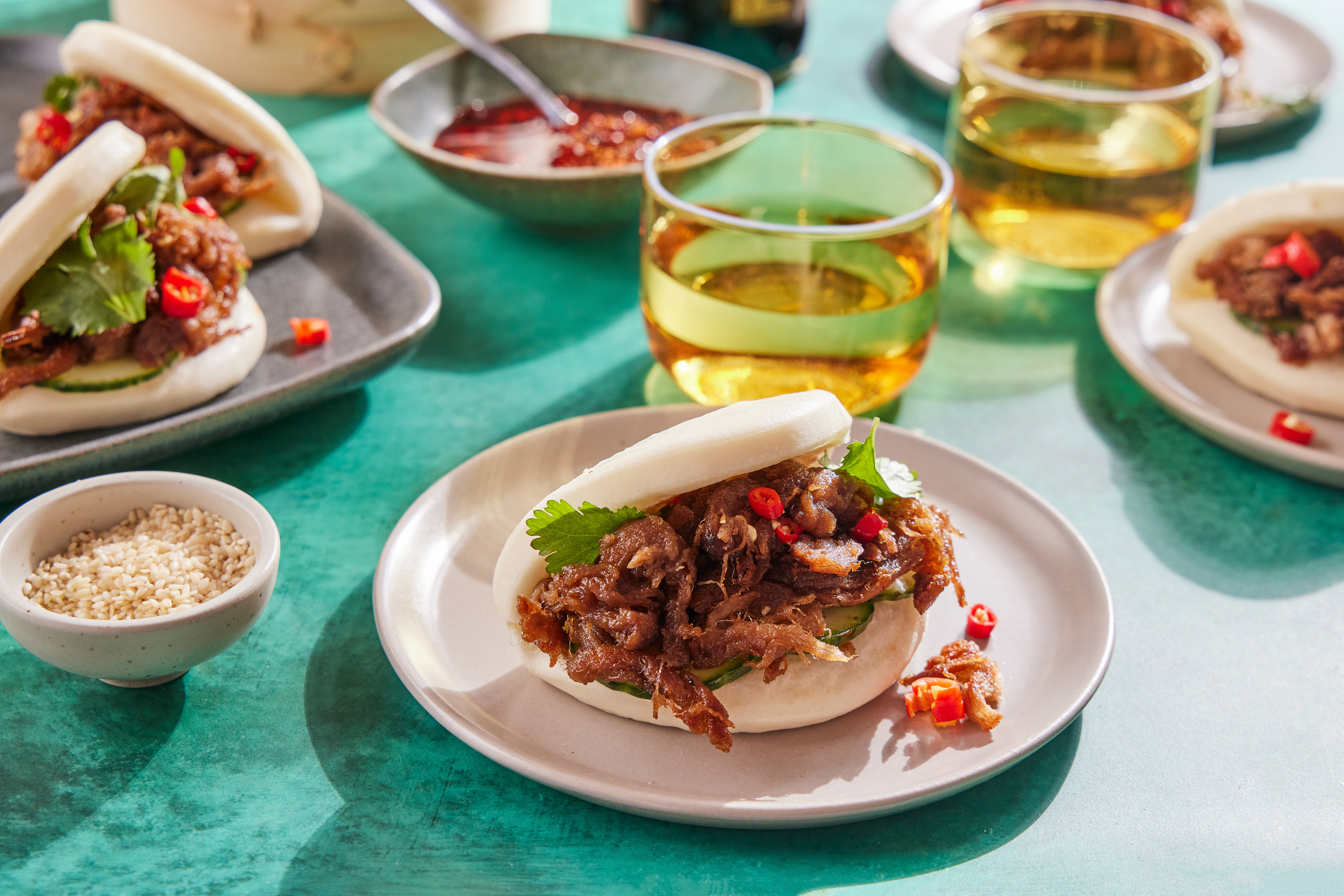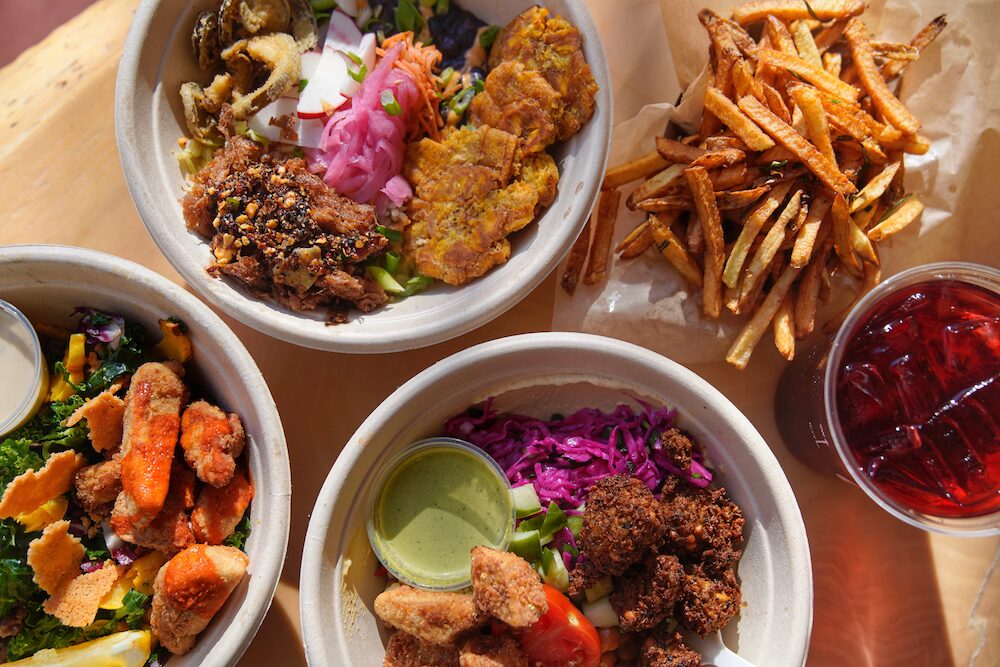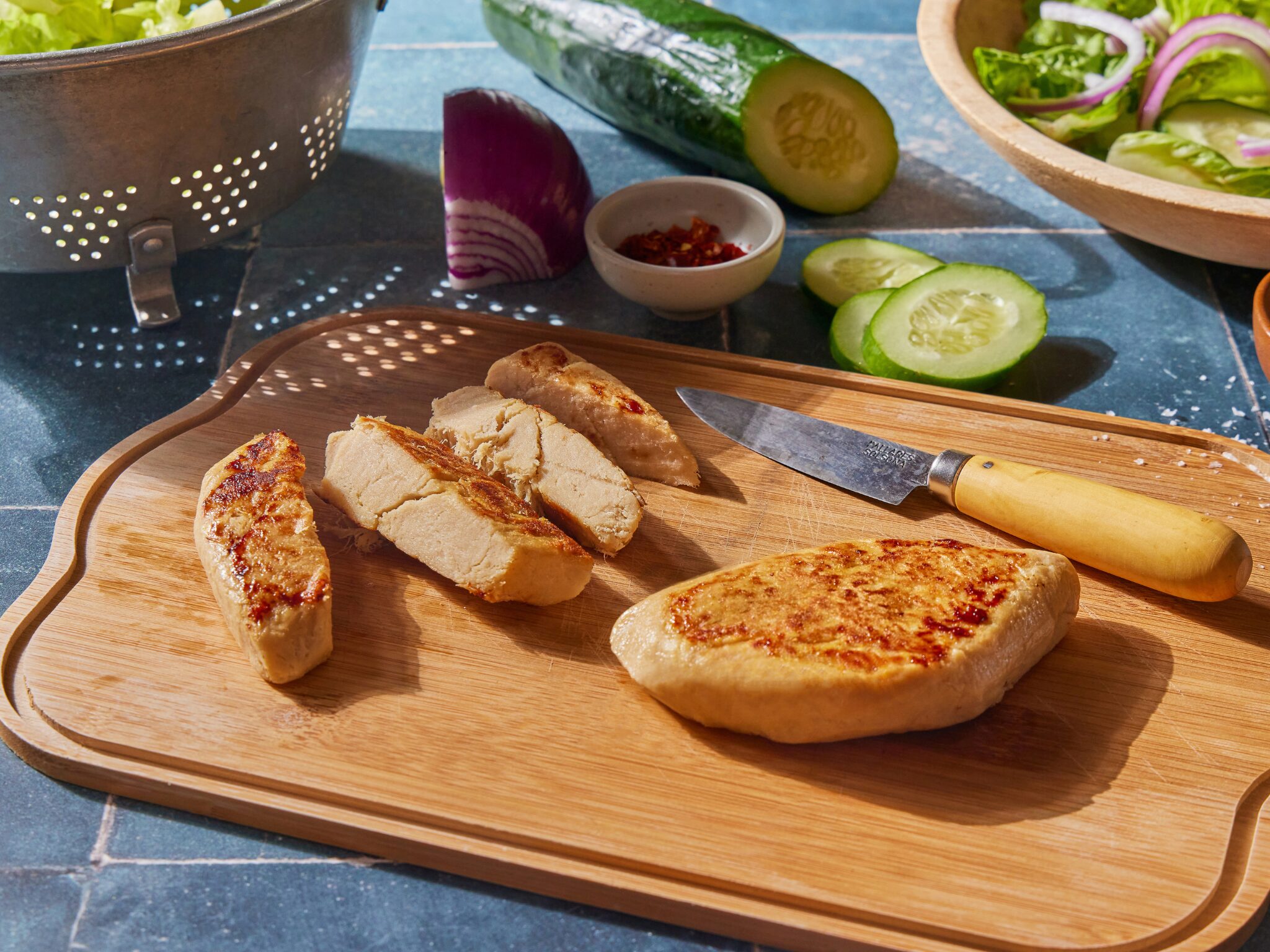Tender Food Closes $11M Series A Round, Inks Fast-Food Deal for Fibre-Spun Vegan Meat
4 Mins Read
Massachusetts-based plant-based meat company Tender Food has raised $11M in a Series A funding round, and secured a contract with local vegetarian QSR chain Clover Food Lab.
Tender’s Series A investment was led by Rhapsody Venture Partners, with Lowercarbon Capital and Safar Partners returning alongside new investors Claridge Partners and Nor’easter Ventures. It brings the startup’s total capital raised to $23M, following a $12M seed round in 2022.
The funds will help Tender expand its production capacity at its new facility to millions of lbs, commercialise its first products at scale, lower manufacturing costs even further, and develop new meat products.
Additionally, they will be used to meet the demands of meatless fast-food chain Clover Food Lab, which is Tender’s latest foodservice customer, having introduced the latter’s meat analogues in all 13 of its restaurants (situated around the Boston area) in May.
Cotton candy tech creates ‘hyperrealistic’ meat analogues

Formerly known as Boston Meats, Tender’s plant-based meat stands out for the way it’s produced – it leverages a fibre-spinning technology licensed from Harvard University, which it spun off from in 2020.
Akin to how cotton candy is made, plant protein fibres are spun to create structured cuts of meat, which results in what the startup calls “hyperrealistic, nutritious, affordable” meat analogues like beef short rib, pulled pork, chicken breast, and crab.
The startup suggests that its meat analogue range “leapfrogs” current market-leading products by the likes of Impossible Foods and Beyond Meat.
“Consumers are largely disappointed with plant-based meat products in the market – they’re too expensive, they don’t taste good, and are mostly limited to burgers and sausages with long, unrecognisable ingredient lists,” said Christophe Chantre, co-founder and CEO of Tender.
“We need new technologies to address these challenges and drive meaningful adoption in this category, which is crucial for decarbonising our food system. Our technology allows us to create healthy products that taste great, have the structure and feel of animal meat and are much cheaper to produce.”
The startup’s patented technology aims to replace the extrusion processes traditionally seen in plant-based meat, and ultimately animal agriculture. “Our production costs are already low today and we have barely started scaling,” Chantre added. “Offering products that compete with animal meat on price is critical for this industry to grow.”
Tender strengthens leadership while exploring hybrid meat

Tender’s vegan meat and seafood products have been featured in restaurants and universities around the Boston area, including Saus Boston, Wusong Tiki Bar, and the Olin College of Engineering.
Clover Food Lab will feature the Tender fried chicken and pork as toppings on its bowls. “We’re a popular vegetarian chain, so, as you can imagine, we try a lot of new plant-based products. Tender’s stood out from the start – it’s innovative, it’s tasty, it’s a great addition to our grain bowls and salads,” said Chris Anderson, senior VP at Clover Food Lab. “And most importantly, we’re hearing lots of positive feedback from our customers – 90% of whom are meat-eaters.”
To advance its mission to decarbonise the food system, Tender has also received a grant worth nearly $1M from the US National Science Foundation for R&D into hybrid meat (a combination of cultivated meat and plant-based ingredients). The startup will collaborate with the Kaplan Lab at the Tufts University Center for Cellular Agriculture to explore if cells can enhance the flavours, aroma and nutrition of its plant-based meats, and whether hybrid products are commercially viable.
Moreover, Tender recently appointed former Oatly North America president Mike Messersmith to its board of directors. Messersmith oversaw the oat milk giant’s US launch in 2017 and built its brand from the ground up in the region, and Tender aims to use his industry experience to help accelerate its own commercialisation plans.
It isn’t the only company using fibre-spinning technology for alternative proteins – Germany’s Project Eaden is doing the same. Research has highlighted the importance of texture in plant-based meat. A global survey in 2022 found that while meat analogues’ texture is as important as conventional alternatives for 75% of consumers, only about 60% were actually satisfied with it.
And a recent US poll found that only 16% of Americans would purchase plant-based meat products for their taste and texture attributes. In restaurant settings too, texture is the second-biggest reason deterring consumers from choosing meat analogues, chosen by 42% of respondents.



